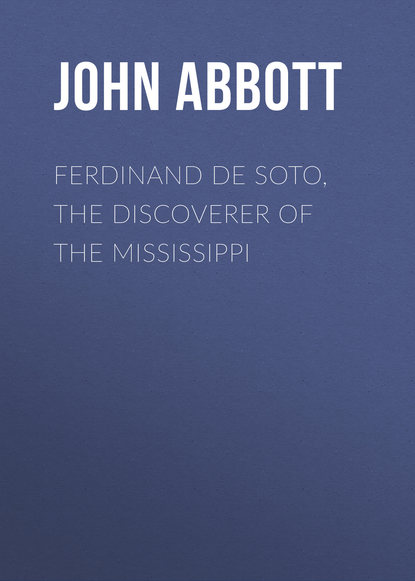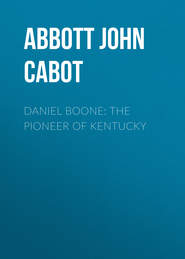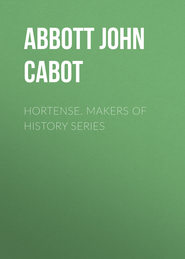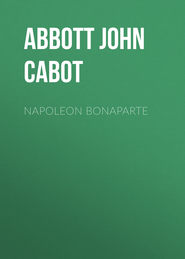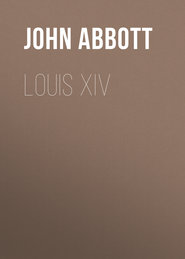По всем вопросам обращайтесь на: info@litportal.ru
(©) 2003-2024.
✖
Ferdinand De Soto, The Discoverer of the Mississippi
Настройки чтения
Размер шрифта
Высота строк
Поля
Anhayea, where the main body of the army took up its quarters, is supposed to have been near the present site of the city of Tallahassee. The two first expeditions sent out, returned, one in eight and the other in nine days, bringing back no favorable report. The other, sent in search of the ocean, was absent much longer, and De Soto became very apprehensive that it had been destroyed by the natives.
Through many perilous and wild adventures, being often betrayed and led astray by their guides, they reached, after a fortnight's travel, the head of the bay now called St. Mark's. Here they found vestiges of the adventurers who had perished in the ill-fated Narvaez expedition. There was a fine harbor to which reinforcements and fresh supplies of ammunition might be sent to them by ships from Cuba, or from Tampa Bay. With these tidings they hurried back to Anhayea.
They had now reached the month of November, 1539. The winter in these regions, though short, had often days of such excessive cold that men upon the open prairie, exposed to bleak winds called northers, often perished from the severity of the weather. De Soto resolved to establish himself in winter-quarters at Anhayea. With his suite he occupied the palace of the chief. The other houses were appropriated to the soldiers for their barracks. He threw up strong fortifications and sent out foraging parties into the region around, for a supply of provisions. As we have no intimation that any payment was made, this was certainly robbery. Whatever may be said of the necessities of his case, it was surely unjust to rob the Indians of their harvests. Still, De Soto should not be condemned unheard; and while we have no evidence that he paid the natives for the food he took from them, still we have no proof that he did not do so.
In accordance with his invariable custom, he made strenuous efforts to win the confidence of the natives. Through captive Indians he sent valuable presents to the chief Capafi in his retreat, and also assurances that he sought only friendly relations between them. The chief, however, was in no mood to give any cordial response to these advances. He had taken refuge in a dense forest, surrounded by dismal morasses, which could only be traversed by a narrow pass known only to the Indians, where his warriors in ambush might easily arrest the march of the whole army of Spaniards. The brutal soldiery of Narvaez had taught them to hate the Spaniards.
He kept up an incessant warfare, sending out from his retreat fierce bands to assail the invaders by day and by night, never allowing them one moment of repose. Many of the Spaniards were slain. But they always sold their lives very dearly, so that probably ten natives perished to one of the Spaniards. There was nothing gained by this carnage. De Soto was anxious to arrest it. Every consideration rendered it desirable for him to have the good will of the natives. Peace and friendship would enable him to press forward with infinitely less difficulty in search of his imaginary mountains of gold and silver, and would greatly facilitate his establishment of a colony around the waters of some beautiful bay in the Gulf, whence he could ship his treasures to Spain and receive supplies in return.
Finding it impossible to disarm the hostility of Capafi by any kindly messages or presents, he resolved if possible to take him captive. In this way only could he arrest the cruel war. The veneration of the Indians for their chief was such that, with Capafi in the hands of the Spaniards as a hostage, they would cease their attacks out of regard to his safety.
It was some time before De Soto could get any clew to the retreat in which Capafi was concealed. And he hardly knew how to account for the fact, that the sovereign of a nation of such redoubtable ferocity, should never himself lead any of his military bands, in the fierce onsets which they were incessantly making. At length De Soto learned that Capafi, though a man of great mental energy, was incapacitated from taking the field by his enormous obesity. He was so fat that he could scarcely walk, and was borne from place to place on a litter. He could give very energetic commands, but the execution of them must be left to others. He also ascertained that this formidable chief had taken up his almost unapproachable quarters about twenty-five miles from Anhayea; and that in addition to the tangled thickets and treacherous morasses with which nature had surrounded him, he had also fortified himself in the highest style of semi-barbarian art, and had garrisoned his little fortress with a band of his most indomitable warriors.
Notwithstanding the difficulty of the enterprise, De Soto resolved to attempt to capture him. This was too arduous a feat to be entrusted to the leadership of any one but himself. He took a select body of horsemen and footmen, and after a very difficult journey of three days, came to the borders of the citadel where the chief and his garrison were intrenched. Mr. Irving, in his admirable history of the Conquest of Florida, gives the following interesting account of the fortress, and of the battle in which it was captured:
"In the heart of this close and impervious forest, a piece of ground was cleared and fortified for the residence of the Cacique and his warriors. The only entrance or outlet, was by a narrow path cut through the forest. At every hundred paces, this path was barricaded by palisades and trunks of trees, at each of which was posted a guard of the bravest warriors. Thus the fat Cacique was ensconced in the midst of the forest like a spider in the midst of his web, and his devoted subjects were ready to defend him to the last gasp.
"When the Governor arrived at the entrance to the perilous defile, he found the enemy well prepared for its defence. The Spaniards pressed forward, but the path was so narrow that the two foremost only could engage in the combat. They gained the first and second palisades at the point of the sword. There it was necessary to cut the osiers and other bands, with which the Indians had fastened the beams. While thus occupied they were exposed to a galling fire and received many wounds. Notwithstanding all these obstacles, they gained one palisade after the other until, by hard fighting, they arrived at the place of refuge of the Cacique.
"The conflict lasted a long time, with many feats of prowess on both sides. The Indians however, for want of defensive armor, fought on unequal terms, and were most of them cut down. The Cacique called out to the survivors to surrender. The latter, having done all that good soldiers could do, and seeing all their warlike efforts in vain, threw themselves on their knees before the Governor and offered up their own lives, but entreated him to spare the life of their Cacique.
"De Soto was moved by their valor and their loyalty; receiving them with kindness, he assured them of his pardon for the past, and that henceforth he would consider them as friends. Capafi, not being able to walk, was borne in the arms of his attendants to kiss the hands of the Governor, who, well pleased to have him in his power, treated him with urbanity and kindness."
Severe as had been the conflict, De Soto returned to Anhayea with his captive, highly gratified by the result of his enterprise. He had strictly enjoined it upon his troops not to be guilty of any act of wanton violence. On the march he had very carefully refrained from any ravaging of the country. He now hoped that, the chief being in his power and being treated with the utmost kindness, all hostilities would cease. But, much to his disappointment, the warriors of Capafi, released from the care of their chief, devoted themselves anew to the harassment of the Spaniards in every possible way.
Capafi seemed much grieved by this their conduct, assuming to be entirely reconciled to his conqueror. He informed De Soto that his prominent warriors, who directed the campaign, had established their headquarters in a dense forest about thirty miles from Anhayea. He said that it would be of no avail for him to send messengers to them, for they would believe that the messages were only such as De Soto compelled their chief to utter. He however offered to go himself to the camp of his warriors, accompanied by such a guard of Spanish troops as De Soto might deem it best to send with him. He expressed the assurance, that he should be enabled to induce his warriors to throw down their arms.
De Soto accepted the proposition. In the early morning a strong escort of infantry and cavalry left the village to conduct the chief to the encampment of the natives. Skillful guides accompanied them, so that they reached the vicinity of the encampment just as the sun was going down. The chief sent forward scouts immediately, to inform his friends of his approach. The Spaniards, weary of their long day's march, and convinced of the impossibility of the escape of the chief, who could scarcely walk a step, were very remiss in watchfulness. Though they established sentinels and a guard, in accordance with military usage, it would seem that they all alike fell asleep. It is probable that the wily chief had sent confidential communications to his warriors through his scouts.
The Spaniards were encamped in the glooms of the forest. At midnight, when darkness, silence and solitude reigned, Capafi stealthily crept on his hands and knees, a few rods from his sleeping guard, into the thicket, where a band of Indian runners met him with a litter and bore him rapidly away beyond all chance of successful pursuit. The Spaniards never caught glimpse of their lost captive again. When they awoke their chagrin and dread of punishment were extreme. The sentinels, who had been appointed to watch the captive, solemnly averred, in excuse for their neglect, that during the night demoniac spirits had appeared, and had borne away the unwieldy chief through the air.
As all the band were implicated in the escape, all were alike ready to aver that, during the night, they had witnessed very strange sights and heard very strange sounds. When they carried back this report, the good-natured De Soto, convinced that fretting and fault-finding would do no good, appeased their alarm by saying, with a peculiar smile:
"It is not strange. These Indian wizards perform feats far more difficult than conjuring away a fat chief."
The winter passed slowly away. The natives were a very ferocious race; tall, strong, athletic, and delighting in war. Every day and every hour brought alarm and battle. The Indians conducted a harassing and destructive warfare. In small bands they roamed through the forest, cutting off any who ventured to wander from the town. It required a large amount of food to supply the wants of the army in Anhayea. Not a native carried any provisions to the town, and it was necessary for De Soto to send out foraging expeditions, at whatever risk. The winter was cold. Fires were needed for warmth and cooking. But the sound of an axe could not be heard in the forest, without drawing upon the wood-cutters, a swarm of foes. De Soto found himself in what is called a false position; so that he deemed it necessary to resort to cruel and apparently unjustifiable expedients.
He took a large number of Indian captives. These he compelled to be his hewers of wood and drawers of water. He would send a party of Spaniards into the forests for fuel. Each man led an Indian as a servant to operate in the double capacity of a shield against the arrows of the natives, and a slave to collect and bring back the burden. To prevent the escape of these Indians, each one was led by a chain, fastened around his neck or waist. Sometimes these natives would make the most desperate efforts to escape; by a sudden twitch upon the chain they would endeavor to pull it from the hands of their guard, or to throw him down and, seizing any club within their reach, would spring upon him with the ferocity of a tiger.
In various ways more than twenty Spaniards lost their lives, and many more were seriously wounded. It was indeed a melancholy winter for the army of De Soto. Their supplies were so far expended that it was needful for them to await the arrival of their vessels in the Bay of St. Marks. It will also be remembered, that De Soto had sent back an expedition to cut its way for a distance of three hundred miles through hostile nations to Ucita, and to summon the garrison there, to set out on a march to join him at Anhayea. Five months were thus spent in weary waiting.
It is estimated that De Soto's force in Anhayea, including the captives who were servants or slaves, amounted to about fifteen hundred persons. He had also over three hundred horses. The fertility of the region was however such, with its extended fields of corn, beans, pumpkins and other vegetables, that it was not necessary to send foraging parties to a distance of more than four or five miles from the village. On the 29th of December, 1539, the two brigantines, which had sailed from Tampa Bay, came into St. Marks, then called the Bay of Aute. For twelve days before the arrival of the ships, De Soto had kept companies of horse and foot marching and countermarching between Anhayea and the Bay, to keep the communication open. They also placed banners on the highest trees, as signals to point out the place of anchorage.
Juan De Añasco, who had command of the vessels, left them well manned in the bay, and with the remainder of the ship's company marched to Anhayea, under escort of the troops sent him by De Soto.
Soon after this, Pedro Calderon arrived with his gallant little band of a hundred and twenty men. By a series of the wildest adventures and most heroic achievements they had cut their way through a wilderness thronging with foes, where an army of eight hundred men had with difficulty effected a passage. Fighting every step of the way and bearing along with them their wounded, their progress was necessarily slow. Several of their number were killed and many wounded. Of the wounded, twelve died soon after they reached Anhayea.
Their arrival in the village was a cause of great gratification to all there. De Soto received them as an affectionate father welcomes his son whom he had supposed to have been lost. The rumor had reached the Governor that all had been slain on the road.
Captain Calderon brought a letter to De Soto, from his wife Isabella. We find the following interesting extract from this letter in the life of De Soto by Mr. Lambert A. Wilmer. It seems to bear internal evidence of authenticity, though we know not the source from which Mr. Wilmer obtained it. The spirit of the letter is in entire accord with the noble character which Mr. Washington Irving gives Isabella, in his life of Columbus and his companions.
"I have lately had some conversation with Las Casas, the Bishop of Chiapa. He has convinced me that the behavior of our people to the Indians is inexcusable in the sight of God, however it may be overlooked by men in high authority. The Bishop has proved to me that all who have taken part in the abuse of these harmless people, have been visited in this life with the manifest displeasure of heaven; and God grant that they may not be punished in the life to come according to the measure of their offense.
"I hope, my dearest husband that no considerations of worldly advantage will make you neglectful of the precepts of humanity and of the duties of religion. Be persuaded to return to me at once; for you can gain nothing in Florida which can repay me for the sorrow and anxiety I feel in your absence. Nor for all the riches of the country would I have you commit one act the remembrance of which would be painful to you hereafter. If you have gained nothing I shall be better satisfied, because there may be the less cause for repentance. Whatever may have been your want of success or your losses, I implore you to come to me without delay; for any reverse of fortune is far better than the suspense and misery I now endure."
This letter must have caused De Soto great perplexity. But for reasons which we have above given he could not make up his mind to abandon the enterprise, and return to Cuba an unsuccessful and impoverished man.
De Soto now ordered the two vessels under Diego Maldonado to explore the coast to the westward, carefully examining every river and bay. It would seem also probable that at the same time he fitted out an expedition of fifty foot soldiers, to march along the coast on a tour of discovery. Maldonado, after a sail of about two hundred miles, entered the beautiful bay of Pensacola, then called Archusi. It was an admirable harbor, and with shores so steep and bold that ships could ride in safety almost within cable length of the land. No Spaniards had previously visited that region, consequently the natives were friendly. They came freely on board, bringing fruits and vegetables, and inviting the strangers to the hospitality of their homes.
Maldonado was allowed without molestation to explore the bay in all directions, taking careful soundings. The vessels returned to the bay of Aute, after an absence of but eight weeks. De Soto was highly gratified with the results of the expedition. It seemed to him that the shores of the bay of Pensacola presented just the position he desired for the location of his colony. He had thus far failed, in his search for gold, but it seemed to him still possible that he might lay the foundation of a populous and powerful empire.
It was now the latter part of February, and an almost vertical sun was throwing down its rays upon them. Maldonado was dispatched with the brigantines to Havana, to return with a supply of clothing, ammunition and such other freight as was needful for the army in its isolated condition. He received orders to be back in the bay of Pensacola, by the first of October. In the mean time De Soto with his army was to make a long circuit through the country, in search of gold. De Soto had received information of a distant province called Cofachiqui, which was governed by a queen, young and beautiful. It was said that this nation was quite supreme over the adjacent provinces, from which it received tribute and feudal homage.
Two lads but sixteen years of age had come to Anhayea, from this province in company with some Indian traders. So far as they could make themselves understood, though very unskilful interpreters, they represented the country as abounding in silver, gold and precious stones. In pantomime they described the process of mining and smelting the precious metals so accurately that experienced miners were convinced that they must have witnessed those operations.
In the month of March, 1540, De Soto left his comfortable quarters, and commenced his march for that province, in a northeasterly direction. Their path led first through an almost unpeopled wilderness many leagues in extent. Each soldier bore his frugal supper or food upon his back. It consisted mainly of roasted corn pounded or ground into meal.
An unobstructed but weary tramp of three days brought them through this desert region to a very singular village, called Capachiqui. In the midst of a vast morass, there was an island of elevated and dry ground. Here quite a populous village was erected, which commanded a wide spread view of the flat surrounding region. The village could only be approached by several causeways crossing the marsh, about three hundred feet in length. The country beyond was fertile and sprinkled with small hamlets. Eight hundred armed warriors, on the open plain, presented a force which the most valiant Indians would not venture to assail. The Spaniards entered the village by these causeways unopposed, and found there a not inhospitable reception.
The day after their arrival, seven of De Soto's body-guard, thoughtless and rollicking young men, set out, without authority from their superior officers, to seek amusement in the neighboring hamlets. They had scarcely reached the main land, beyond the marsh, when the Indians, from an ambush, rushed upon them, and after a very fierce struggle all but one were slain, and that one, Aguilar, was mortally wounded. The soldiers in the village hastened to the relief of their comrades, but they were too late. Aguilar, in a dying condition, was carried back to the encampment. He had, however, sufficient strength left to make the following extraordinary statement:
"You must know that a band of more than fifty savages sprang out of the thickets to attack us. The moment, however, they saw that we were but seven, and without our horses, seven warriors stepped forth, and the rest retired to some distance. They began the attack, and as we had neither arquebus nor cross-bow, we were entirely at their mercy. Being more agile, and fleet of foot than our men, they leaped around us like so many devils, with horrid laughter, shooting us down like wild beasts without our being able to close with them. My poor comrades fell one after the other, and the savages seeing me alone, all seven rushed upon me, and with their bows battered me as you have witnessed."
This singular event took place within the territory of Appalachee. It is said that the Spaniards not unfrequently met with similar instances, in which the natives disdained to avail themselves of superior numbers.
CHAPTER XIII
Lost in the Wilderness
Incidents at Achise – Arrival at Cofa. – Friendly Reception by Cofaqui. – The Armed Retinue. – Commission of Patofa. – Splendors of the March. – Lost in the Wilderness. – Peril of the Army. – Friendly Relations. – The Escape from the Wilderness. – They Reach the Frontiers of Cofachiqui. – Dismissal of Patofa. – Wonderful Reception by the Princess of Cofachiqui.
After a couple of days of rest and feasting, the Spanish army resumed its march. De Soto led the advance with forty horsemen and seventy foot soldiers. Ere long they entered the province of Attapaha, from which the river Attapaha probably takes its name. On the morning of the third day they approached a village called Achise. The affrighted natives had fled. Two warriors who had tarried behind, were captured as the dragoons came dashing into the streets. They were led into the presence of De Soto. Without waiting to be addressed by him, they haughtily assailed him with the question,
"What is it you seek in our land? Is it peace, or is it war?" De Soto replied, through his interpreter,
"We seek not war with any one. We are in search of a distant province; and all that we ask for is an unobstructed passage through your country, and food by the way."
The answer seemed to them perfectly satisfactory, and they at once entered apparently into the most friendly relations. The captives were set at liberty and treated by the Spaniards, in all respects, as friends. Promptly the two warriors sent a message to their chief, informing him of the peaceful disposition of the Spaniards, and he accordingly issued orders to his people not to molest them.
In this pleasant village, and surrounded by this friendly people, De Soto spent three days. He then resumed his journey, in a northeasterly direction, along the banks of some unknown river, fringed with mulberry trees, and winding through many luxuriant and beautiful valleys. The natives were all friendly, and not the slightest collision occurred. For eleven days the army continued its movements, encountering nothing worthy of note.
They then entered a province called Cofa. De Soto sent couriers in advance to the chief with proffers of friendship. The chief, in return, sent a large number of Indians laden with food for the strangers. With the provisions were sent rabbits, partridges, and a species of dog whose flesh was held in high esteem. The Spaniards suffered for want of meat; for though game in the forest was abundant, being constantly on the march, they had no time for hunting.
The chief of Cofa received the Spaniards in his metropolitan town with great hospitality. He assigned his own mansion to De Soto, and provided comfortable quarters for all his troops. The natives and the Spaniards mingled together without the slightest apparent antagonism. The province of Cofa was of large extent, populous and fertile. Here the Spaniards remained five days, entertained by the abounding hospitality of the chief.
De Soto had thus far brought with him a piece of ordnance, which had proved of very little service. It was heavy and exceedingly difficult of transportation. He decided to leave it behind him with this friendly people. To impress them, however, with an idea of its power as an engine of destruction, he caused it to be loaded and aimed at a large oak tree just outside of the village. Two shots laid the oak prostrate. The achievement filled both the chief and his people with amazement and awe.
Again the army resumed its march towards the next province, which was called Cofaqui whose chief was brother of Cofa. The Spaniards were escorted by Cofa and a division of his army, during one day's journey. The friendly chief then took an affectionate leave of De Soto, and sent forward couriers to inform his brother of the approach of the Spaniards and to intercede for his kindly offices in their behalf. It required a march of six days to reach the territory of the new chieftain.





